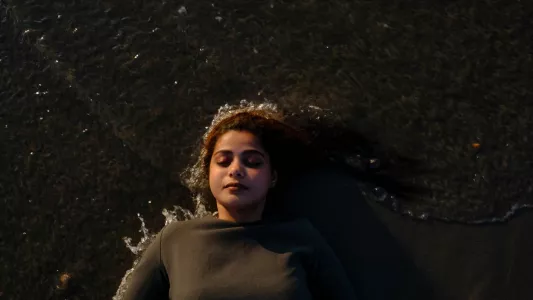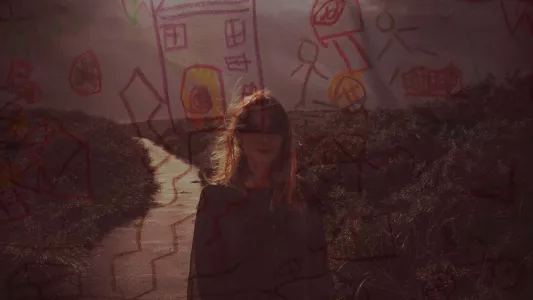Why is it that when we are with a stranger with no topic of conversation, the climate is the typical wildcard? It's hot right? It's freezing outside, When will it stop raining? These one-liners tend to be obvious when social skills fail to launch, but why climate? Can't it be food or political news? Sure, there are complex and one-of-a-kind eloquent speakers, but common peasants stick with the temperature, and sooner or later it comes in handy.
There is diversity in what people believe, trust and think, but no one saves themselves of corporality and its perks. Bodies cannot be immutable to the exterior, to react to it its part of their jobs, and sure we may have opinions and preferences on the climatic conditions, but we can never stop our body from feeling them. And it's not just climate, it's our physical surroundings itself, it's the time and place. What does it change when we are physically in other zip codes, in other latitudes and longitudes? Is it gravity, is it sea level, is it excess oxygen supply, is it the lack of it? They have a specific effect on our corporal being, and by consequence on our spiritual map. Do our emotions change at the pace of the space?
Our nature finds it impossible to be isolated systems, energy comes in and out and mass does it too, emotions are chemical reactions to altered levels of incomes and outcomes. Mountains mark us, pavement marks us, rivers, walls, roads, and ponds. The environment translates itself through our senses into an "emotional landscape" as photographer Thana Faroq (@thanafaroq7) calls it. This is one of the axes of her body of work, along with identity construction, home-belonging, and memory nostalgia. In her recent work There is a Blue Sky and No Rain Today she is creating a photographic exploration about a generation of women in exile in The Netherlands, how their identity is constructed and deconstructed from their current land and the one they left behind. And again space stepping in, transmitting our interior through its tangible effect on our mass. Of course, there are millions of factors that determine how a place sticks on a soul. Whether it's a person, history, personal preference, or intention. The why you are where you are. A huge component of this equation comes to the purpose of your staying, and no bitter pill is harder to swallow than being taken somewhere undesired, unknown, or simply odd. More than the land above the feet and the sky above the crest, is what that piece of land represents and its presence (which means the absence of somewhere else) because reality accepts just one spatial plane at a time (at least for now).

That's the exact case of hundreds of women that seek refuge in diverse countries due to extreme conditions in their homeland, Thana has spent the last year documenting the aftermath that occurs after finding new soil to safely step on. Their physical belongings may not be theirs anymore, but the emotional baggage that comes from the situational and physical process of relocation is free, sponsored by life itself. The images of Faroq explore the new day-to-day landscape of women and their families. The struggle of inserting yourself into society with its rules and contradictions, that may or may not match what you used to know as safe and acquainted. Those women are in a kind of archaeological restoration program, where they try to build and construct a new life over the ruins of their past losses. Their homes are under construction, their bodies are under construction, their finances are under construction, the paradigm of who they are is shifting waters and finding blue skies.
Faroq herself was exiled from Yemen and went to the Netherlands, her point of photographic production and arrangement comes from a place of deep understanding of empathy and carnal experience. Her images are "a way to respond to the changes that have been shaping and defining my life and sense of belonging both in Yemen and The Netherlands." Her response merges with the infinite emotional replies of women that are actively seeking to rebuild their safeness, their aspirations, hopes, and families. This construction represents their resilience towards adversity and emotional sabotage that comes out from aggressive changes. As Faroq herself would state: "I learned that we women who live in exile are burned already, and from our ashes, we rise like a phoenix and fight again."

A huge challenge is to define and understand who we are, and it's tougher when you have to decide how to assemble yourself and if
change
has a word in the saying. How to evolve and not lose identity, or if you want to lose it, how do you define what you would be next? Isn ́t the debris of your old you going to determine your future self whether it's for similarity or contradiction? These emotional battles are part of the evolving process of continuous change that these women confront to find themselves again in a land that, with hope, could give them a chance to think of a peaceful future for themselves and their families. Not just for the ones beside them but for the members that are still on somber grounds.
Faroq photographs move the emotional landscapes of the spectators as they are witnessing the emergence of a new identity that rises from vulnerability and creates opportunity for them and for future generations of women searching for a place where they can feel womanhood at their fullest. Women are experiencing a slow upgrade in the world's hierarchy where they are stepping ground and demanding freedom. And that spirit of an incandescent fight will never run out, like Faroq and the women she documents, because the real spirit of womanhood is resilience.




